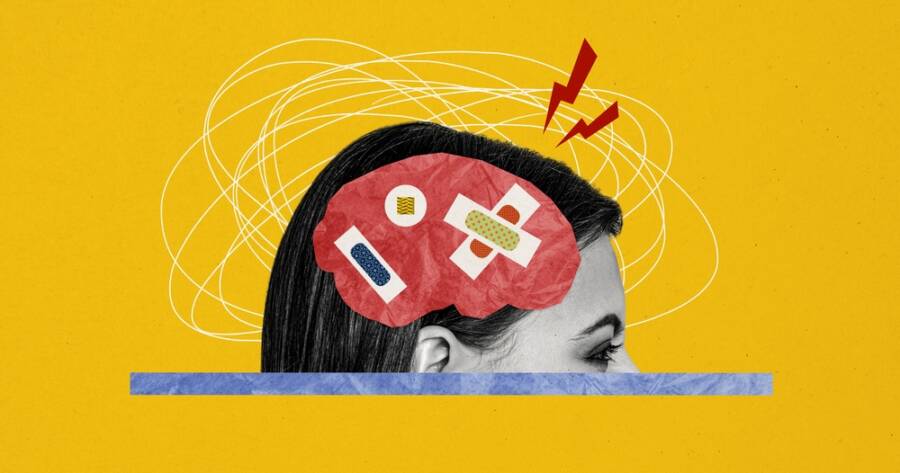Schizophrenia is a complex mental health condition that could potentially affect a person’s ability to think clearly, manage emotions, and interact socially. Early detection of symptoms might be crucial in providing effective treatment and improving long-term outcomes. Although not everyone with early signs will develop schizophrenia, recognizing potential indicators and understanding possible causes could help in identifying those at risk.
Early Signs of Schizophrenia
Schizophrenia often emerges during late adolescence or early adulthood, but early warning signs might begin to manifest earlier. If someone is experiencing these symptoms, it doesn’t necessarily mean they will develop schizophrenia, but it could indicate that further evaluation is needed. Early signs might include subtle changes in mood, behavior, or cognition. These could present as mild at first, but might gradually become more intense over time.
- Social Withdrawal: A person could start withdrawing from friends and family, showing a lack of interest in social activities they once enjoyed. They might seem isolated or emotionally detached, which could be an early sign of a larger problem.
- Cognitive Decline: Problems with concentration, memory, or decision-making might also suggest early schizophrenia. A person may become easily confused or find it difficult to complete tasks that once seemed easy.
- Unusual Thoughts or Suspiciousness: An individual might exhibit odd beliefs or paranoid thoughts, which could be subtle at first but gradually become more persistent. These thoughts might include the feeling of being watched or believing that people are talking about them, even if there’s no evidence to support these ideas.
- Mood Changes: Early symptoms of schizophrenia might also involve noticeable changes in mood. The person might appear unusually anxious, depressed, or irritable without an apparent reason. These mood shifts could impact their daily life and interactions.
- Decline in Personal Hygiene: A decline in personal grooming and hygiene could also be an early indicator of schizophrenia. A person might stop caring about their appearance or neglect basic self-care tasks.
Possible Causes of Schizophrenia
The exact cause of schizophrenia remains unclear, but it is likely to involve a combination of genetic, biological, and environmental factors. Although no one factor will necessarily lead to schizophrenia, these elements might increase the risk.
- Genetic Factors: There is evidence suggesting that genetics might play a role in the development of schizophrenia. If an individual has a close family member with the condition, they could be at higher risk. However, having a genetic predisposition doesn’t guarantee that someone will develop the disorder.
- Chemical Imbalance in the Brain: Schizophrenia may be linked to an imbalance in neurotransmitters, such as dopamine and serotonin. This imbalance could affect the brain’s ability to process information, potentially contributing to the development of schizophrenia.
- Brain Structure and Function: Some studies suggest that individuals with schizophrenia could have subtle differences in brain structure or function. These differences might not directly cause the condition but could increase the susceptibility to developing symptoms.
- Environmental Triggers: Environmental factors might also play a significant role in the development of schizophrenia. For instance, exposure to stress, trauma, or significant life changes could trigger symptoms in individuals who are already predisposed. Prenatal exposure to infections or malnutrition might also increase the risk.
- Substance Use: Substance abuse, especially during adolescence, could be a contributing factor. Using certain drugs, such as cannabis, amphetamines, or hallucinogens, might increase the likelihood of developing schizophrenia, particularly in those who are already at risk due to genetic factors.
Why Early Detection Matters
If schizophrenia is detected early, treatment could begin sooner, which might lead to better outcomes. Early intervention could potentially delay or even prevent the full onset of the disorder. Treatment typically involves a combination of antipsychotic medication, therapy, and support from healthcare professionals. Recognizing early signs doesn’t guarantee a diagnosis, but it could help individuals and their families seek professional guidance before symptoms escalate.
Learn More About Signs of Schizophrenia
Schizophrenia is a complex condition with various potential early signs and contributing factors. While recognizing these early warning signs doesn’t necessarily mean someone will develop schizophrenia, it could indicate the need for professional assessment. Understanding the possible causes, including genetic, biological, and environmental factors, could also help in identifying those at risk. Early intervention might be the key to managing symptoms effectively and improving the quality of life for those affected.
